Speakers
Swimming in Complexity
James Box
New projects feel great. Everything is possible. You’re working with a new team, full of ambition. This is the one you’ve been waiting for. A chance to use all those new methods, embrace new mindsets and design the killer user experience you know you have in you.
Then something changes. One or two of your stakeholders have developed ‘interesting’ expectations. The development team is struggling to prise resources away from delivery. Your attempts to get everybody aligned, means your research budget has now got worryingly close to zero. Then the project manager hits you with the MVP stick.
Somewhere, somehow, things got complex. And now you’re feeling overwhelmed and full of fear.
This is a talk about what to do when you encounter that feeling. James will talk about ways to recognise the symptoms of complexity and how to respond in a way that makes sense for you and your team.
Slides
James Box - Swimming in Complexity slidedeck
About James
James is Director of UX at Clearleft, he is an experienced digital design professional with a heavy skew towards UX and Lean practices.
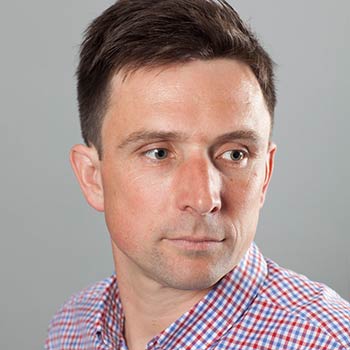
He’s most at home leading highly collaborative, multi-disciplined teams within an iterative design process, whether that is for an early stage startup or an established for-profit business. His previous clients include the BBC, Channel 4, Pearson, the BFI, Amnesty International and NBC Universal. James co-authored the book Undercover User Experience Design and has spoken at design events around the world including South by Southwest, UX Australia, Tech4Africa, UXLondon and the Web Apps Summit.
@boxman
Meet our other speakers
Hypothetically Coherent
Liz Keogh
We know from the Lean UX community that hypotheses can help us to create experiments, finding out what users want with real data - but if the hypothesis fails, is there sometimes more to learn?
In this talk Liz introduces Cynefin, a framework for making sense of different situations and how to approach them depending on their predictability. We look at the role of complexity in human interaction in generating unexpected but important side-effects, and the difference between hypothesis / experiment and coherence / probe as ways of enabling discovery across multiple human dimensions.
Louis Pasteur said that in the field of observation, chance favours the prepared mind. Come and find out how to prepare yours!
Slides
Liz Keogh - Hypothetically Coherent slidedeck
About Liz
Liz is an independent Lean and Agile consultant based in London. She is a well-known blogger and international speaker, a core member of the BDD community and a contributor to a number of open-source projects including JBehave.

Liz works with subjects as diverse as haiku poetry, complexity thinking, effective personal feedback and OO development, and has a strong technical background with almost 15 years’ experience in delivering and coaching others to deliver large-scale enterprise applications, which she now combines with a focus on psychology, NLP and adult learning. She has pioneered the application of learning models in measuring Agile maturity and coaching progress, and is currently interested in modelling risk and change with complexity thinking and the Cynefin framework. Liz was awarded the Gordon Pask award in 2010 for deepening existing ideas in the Agile space and “coming up with some pretty crazy ones of her own”. She is also a science fiction writer and published poet.
@lunivore
Meet our other speakers
Measuring customer effort with top tasks
Gerry McGovern
A customer centric universe involves reducing time and effort for people as they seek to complete their top tasks. Top Tasks Management gives you a model to prove that you are optimising the experience of your customers. It's all about focusing on the activity of the customer, rather than what has traditionally happened — focusing on the activity of the organisation.
Slides
Gerry McGovern - Measuring Customer Effort with Top Tasks slidedeck
About Gerry
Gerry has published six books about the need for customer-centricity in the online world. His latest book, Transform, explains why digital transformation is far more about culture change than technology change.
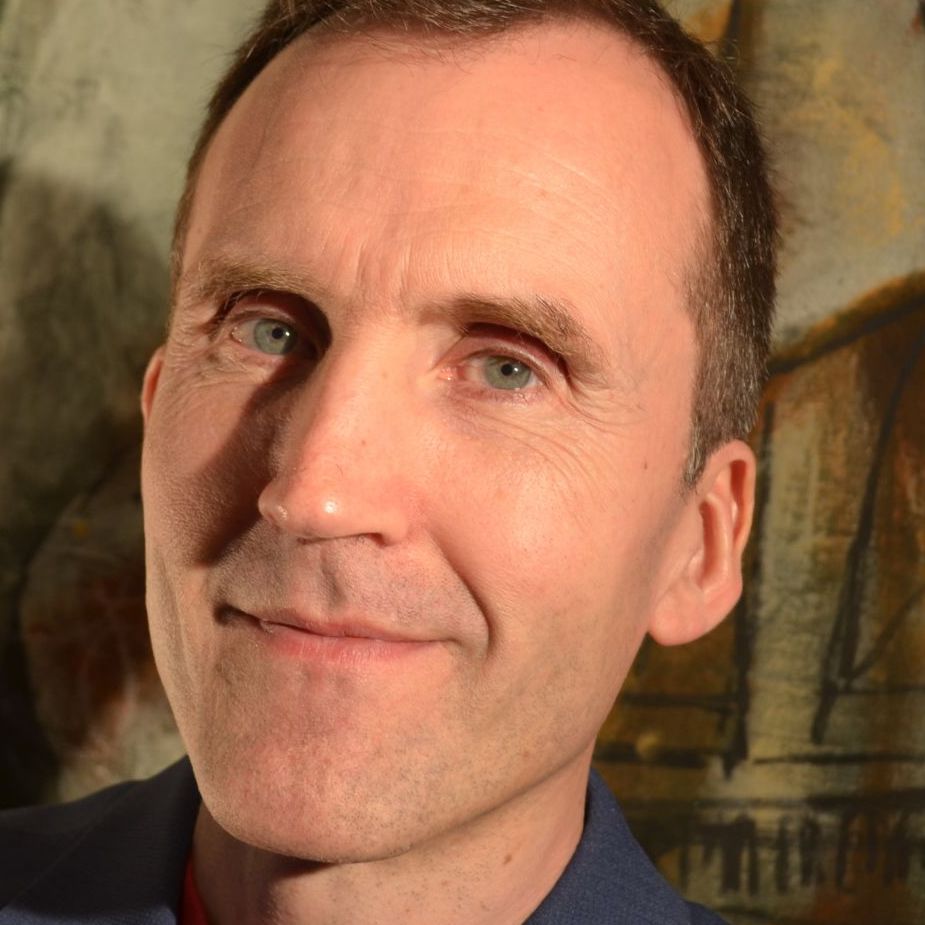
Gerry has spoken and consulted on online customer experience in 35 countries. His company, Customer Carewords, specialises in helping large organisations (such as Microsoft, Cisco, European Commission, and VMware) deliver a better customer experience online through focusing on making the top customer tasks easier to find and simpler to do.
customercarewords.com
@gerrymcgovern
Meet our other speakers
Applying systems thinking in product design
ShekMan Tang
To design a great product, you need to understand its foundations before focusing on the details. That’s where systems thinking comes in. It’s a top-down approach where you consider the big picture first and the specific interactions later.
It helps you establish a design system early, which sets the course of the product direction, gets the team on the same page, and focuses your design effort on the most important product areas.
In this talk ShekMan Tang will introduce the foundations of systems thinking, and how we could apply it in the practice of product design.
Slides
Shekman Tang - Applying Systems Thinking in Product Design slidedeck
About Shek
Shek is a product designer with a passion for shipping impactful products. At Intercom, he’s currently responsible for crafting designs for helping sales teams be more efficient.
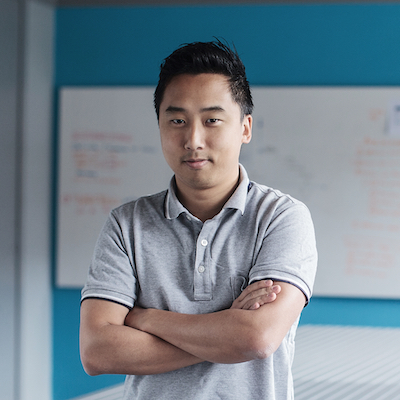
Prior to Intercom he worked for a design consulting firm, completed projects with global clients including Citibank, Telefonica and Vodafone. Shek enjoys traveling to observe and take inspirations from the real world.
@Shekman
Meet our other speakers
Breaking the (design) confines
Aleksandra Melnikova
In the race for profitability, digital agencies rush to establish processes to ensure stable and successful delivery. Those processes can often feel very mechanic, almost like an assembly line. But they often forget something. Good design is not done in established phases. It comes from multiple drivers, from courage and from change, above all. It comes from unexpected associations, from art and philosophy, from metaphors and connections. My talk is based around exploring the connections between design and multiple (seemingly unrelated) disciplines, with a focus on methods and techniques that enable people to create richer design artefacts and experiences (extending beyond digital).
Slides
Aleksandra Melnikova - Breaking the (design) confines slidedeck
About Aleks
Aleks is an Experience Design Director bringing the power of connected disciplines into design, research and team management.

Being trained in Arts and Product Service Systems design is a combination that enables her to make any project, no matter the size, her playground by creating new methods, tools and approaches, frequently challenging the existing structures and status quo. Over the last 10 years, she has worked both client and agency side and has led and successfully delivered (digital) experiences for companies like VISA, Lloyds, TSB, SKY, Aviva, VSO, GSK and British Airways. Aleks currently leads the Experience design team at Radley Yeldar, her role being to connect the company from within, driving experience excellence and strategy.When not at work, she collaborates with a few UK universities, blogs about the connections between literature, art and design and spends time suspended in the air trying to become a pro at aerial arts.
@alex_andr_a
Meet our other speakers
Differentiating with Design Activism
Daniel Harris
We’re in an incredible era of un-precidented technological opportunity where anything we can imagine can be built. As designers, we’re at the forefront of making this technology work for organisations. The question is, are we pointing this power in a positive direction?
Welcome, generation i!. You are more likely to be depressed and mentally unwell than ever before! Our digital culture compounds these generational challenges and the industry continues to treat digital like an exploitable asset. So what happens then as that asset becomes further and further a part of society. A part of our humanity?
At the same time this generation is valuing the part organisations have to play in improving communities and lives – not just with sponsorship or CSR programmes, but in the way they operate and serve. And it’s becoming part of big business. Some estimates suggest that 75% of the S&P 500 companies will not exist in 2027 – companies unable to respond to the rate of change in customer expectations of them.
In comes Design Activism; termed by Alistair Fuad-Luke as “design thinking, imagination and practice applied… to generate and balance positive social, institutional, environmental and/or economic change.”
I’ll use stories and examples to show how UXers are increasingly empowered to build the world they want to see, with their client and organisational stakeholders with them all the way. In this new era, appetite, point of view, and passion become major ingredients for unleashing the power of UX and design into a new realm of influence.
Daniel Harris - Design Activism slidedeck
About Daniel
Daniel Harris is a Service Design expert, obsessed with how people connect with the world through the design of things that wrap around them.
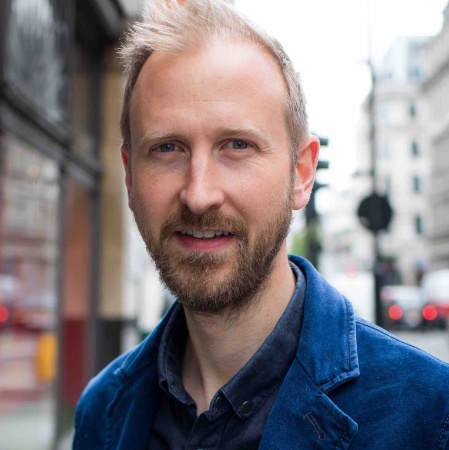
He has a strong belief in the power of collaboration to design products and services that sustainably connect in a meaningful way to the irrationalities of the human context.
His mission is to improve society through design. He believes that by employing society-led design, businesses can create sustainable, powerful differentiation in how they connect to their employees and customers.
@danramble
Meet our other speakers
Models from Complexity Science
Karen Cham
In popular dialogues, describing a system as "complex" is often the point of resignation, inferring that the system cannot be sufficiently described, predicted nor managed. Scientific dialogues however, have explored the collective behaviours of complexity to formally define a complex system. This presentation will introduce generic principles from complex systems science, and unpack how and why they can be applied to user experience design.
Slides
Karen Cham - Models from Complexity Science slidedeck
About Karen
Director of Rhizometric Design and Professor of Digital Transformation Design at the University of Brighton
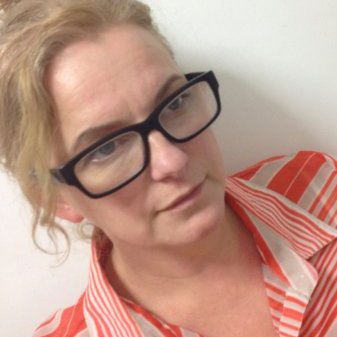
Karen has 23 years experience in human centred digital transformation design and design methods for complexity. Her first website project was in 1994 and first machine learning project 1996. Working with companies like Playstation, Diesel, Which?, Top Shop, Absolut Vodka and The Ministry of Sound, she has researched and designed Brain-computer interfaces, AR, VR, haptics, computer vision, machine learning, automatic signal recognition and AI.
Professor Cham’s research focus is end user engagement and narrowing the gap between people & machines to create emotional responses and nudge behaviour change, and has published in IEEE, Intellect, Routledge, Palgrave and the British Computer Society. She is also a pre-publication Manuscript Reviewer for Berg, Palgrave, AVA, Routledge, Taylor Francis and Bloomsbury. Karen also speaks at conferences worldwide and is a Women in Games Ambassador.
rhizometricdesign.com • brighton.ac.uk
Meet our other speakers
Situational Awareness: A superpower for UX designers
Simon Wardley
In a world where companies are competing to out-innovate one another, UX designers are being called upon to help determine their organisations’ future direction. Increasingly, we’re being asked to identify which user needs will be most important to focus on and to determine how the services we should best support those needs.
Simon will present Wardley Maps: A method for gaining situational awareness – an understanding of where you are now that informs and empowers you to take control of your company's future.
Add this graphical, user-centred business tool to your arsenal of skills and start guiding your company toward success.
Slides
Simon Wardley - Situational Awareness slidedeck
About Simon
Simon is a Researcher for Leading Edge Forum and the lead practitioner for Wardley Maps advisory service, helping clients anticipate market and ecosystem developments.
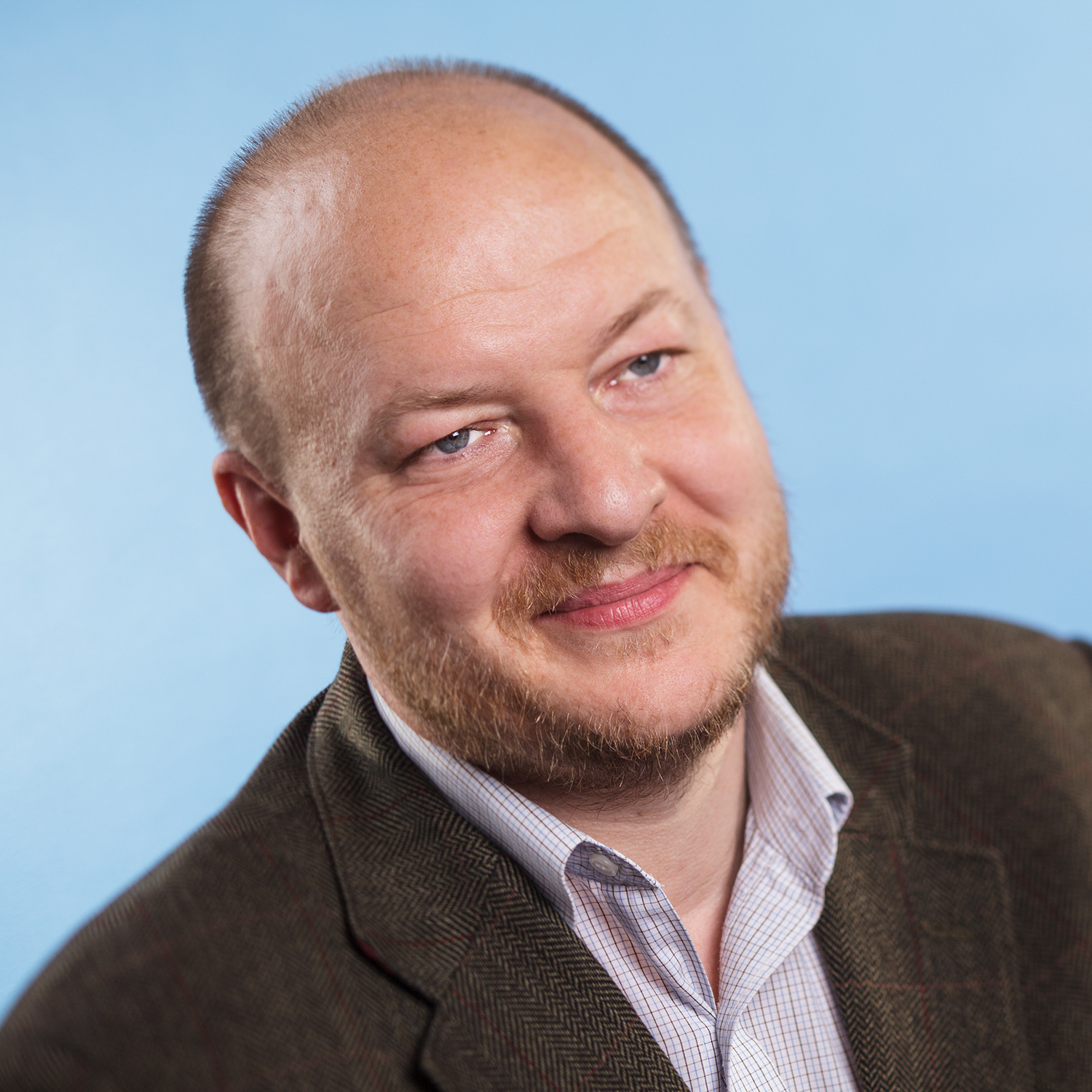
He has spent the last 15 years defining future IT strategies for companies in the FMCG, Retail and IT industries. From Canon’s early leadership in the cloud computing space in 2005 to Ubuntu’s recent dominance as the #1 Cloud operating system.
As a geneticist with a love of mathematics and a fascination in economics, Simon has always dealt with complex systems, whether it’s in behavioural patterns, environmental risks of chemical pollution, developing novel computer systems or managing companies. He is a passionate advocate and researcher, having published reports in the fields of open source, commoditisation, innovation, organisational structure and cybernetics.
Simon is a regular presenter at conferences worldwide, and has been voted one of the UK's 50 most influential people in IT.
@swardley
medium.com • leadingedgeforum.com
Meet our other speakers

















